Lesson 3: Percentages in Real Life
/en/percents/calculating-percentages/content/
Sales tax
Depending on where you live, you might pay a sales tax on the things you buy. A sales tax is an extra charge added to the price of an item. The amount you pay in tax is almost always a percentage of that price.
Suppose you buy a $50 coffeemaker in an area where the sales tax is 8%. When you check out, 8% of $50 would be added to your total price. How much would you pay total?
Click through the slideshow to learn how to calculate sales tax.
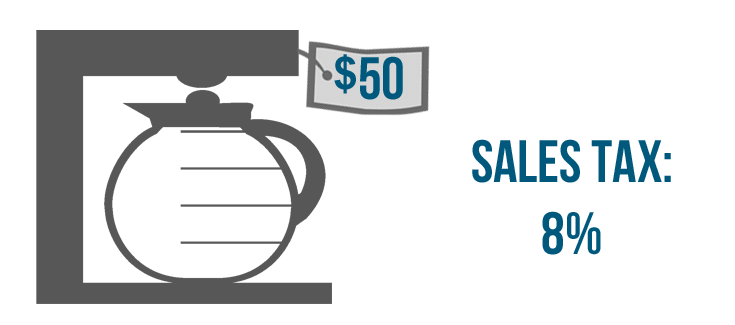
Let's say you want to buy a $50 coffeemaker, and the sales tax is 8%.
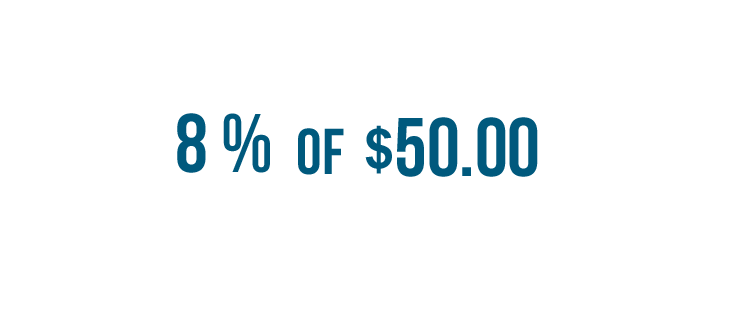
Sales tax is a percentage of the price of the item. This means the sales tax is eight percent of fifty dollars.
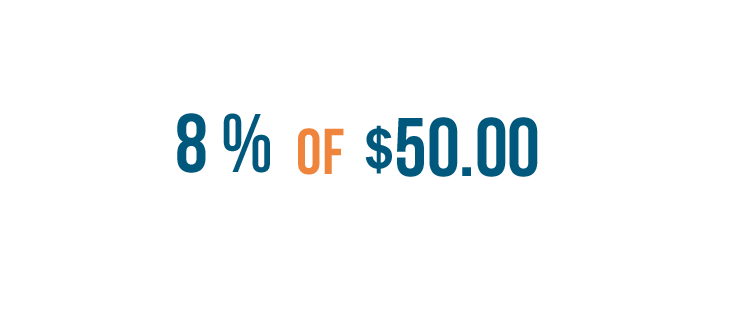
Whenever you see the phrase "of something" in a math sentence, it's usually a hint that you'll need to multiply.
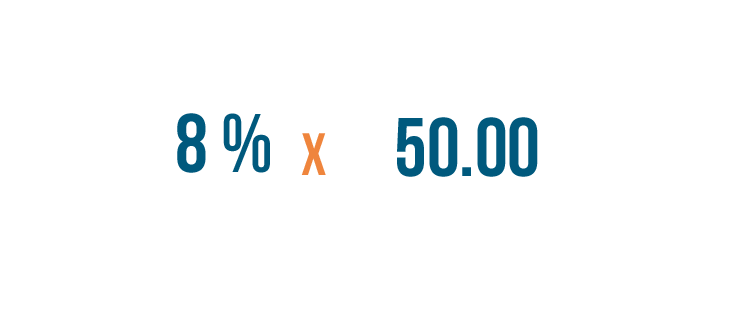
So we'll multiply 50 by 8%.
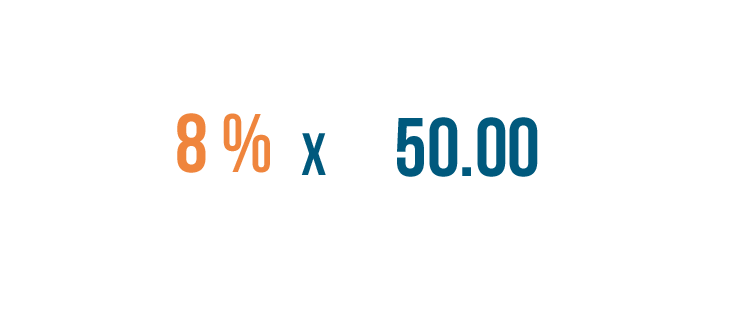
Before we can do that, we'll need to convert 8% into a decimal.
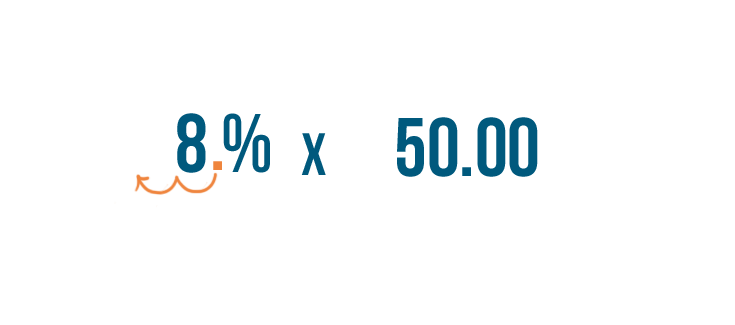
We'll move the decimal point two places to the left...
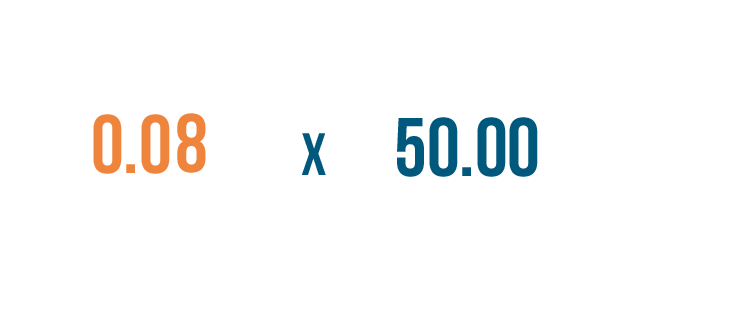
We'll move the decimal point two places to the left...so 8% becomes 0.08.
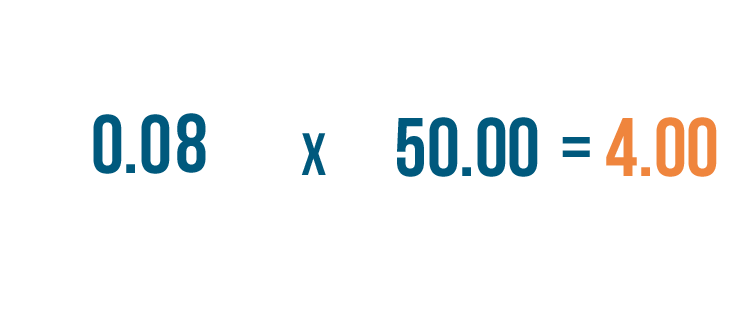
Now we can multiply: 0.08 times 50 equals 4.00.
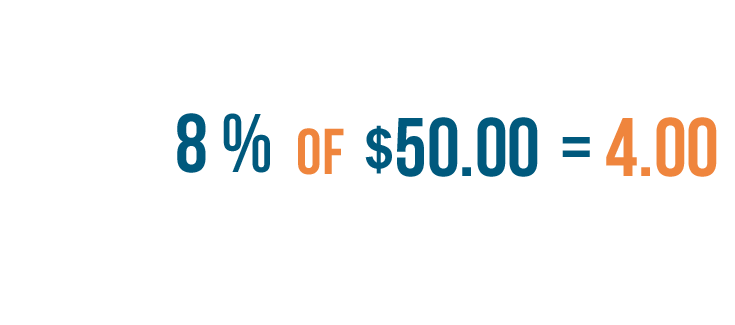
So the sales tax is $4.00. Another way to say this is that 8% of $50.00 is $4.00.

Remember, sales tax is an extra charge added to the price of an item. So we'll add the sales tax to our original price.
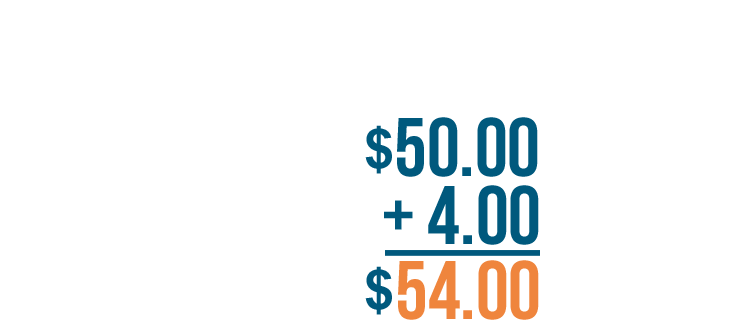
$4.00 plus $50.00 equals $54.00.
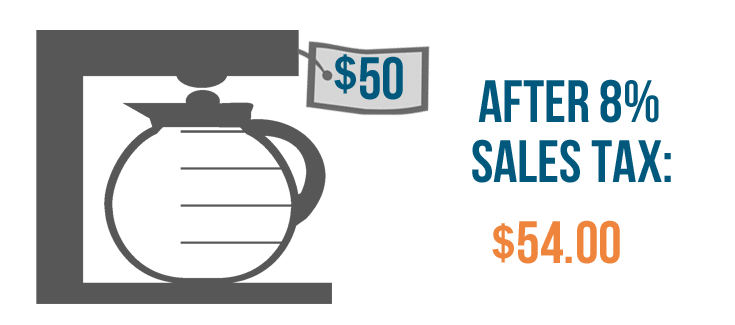
The final price of the coffeemaker is $54.00 after adding sales tax.

Let's try another example. Let's say you want to buy a six pack of soda that costs $4.50, and the sales tax on food is 4%.
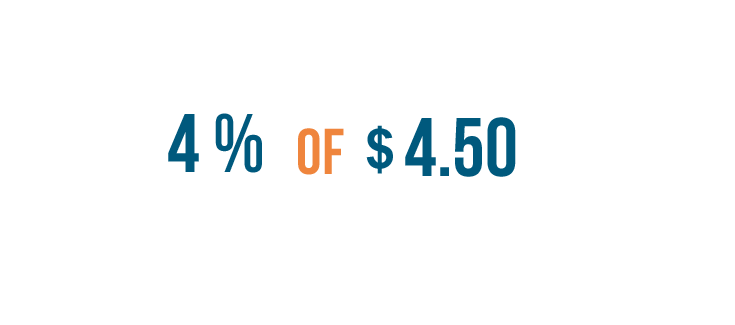
This means the sales tax is 4% of $4.50.
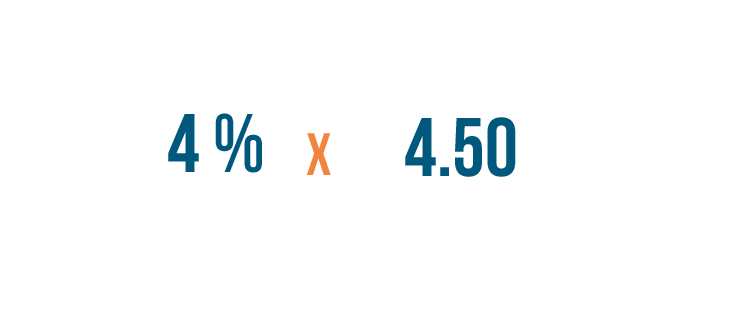
So we'll multiply 4% by 4.50.
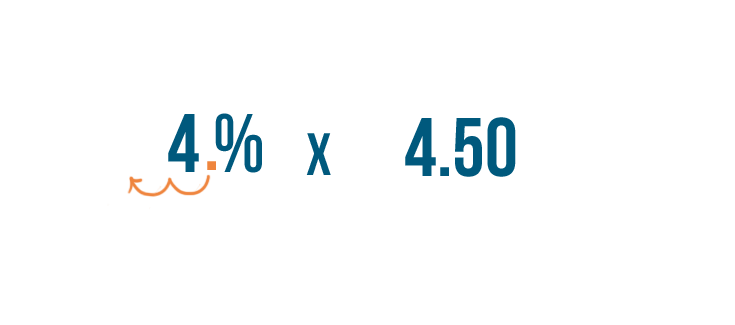
First, we need to convert 4% into a decimal, so we'll move the decimal point two places to the left.
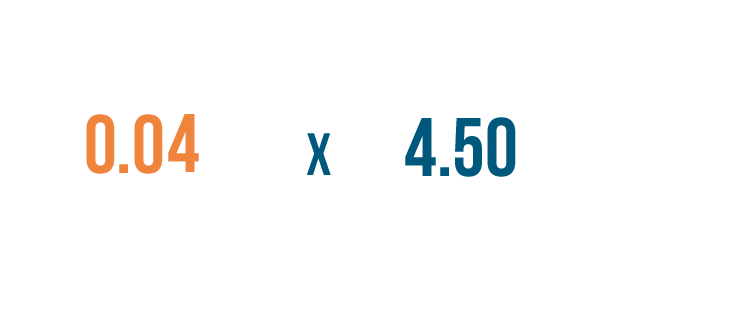
4% is the same as 0.04.
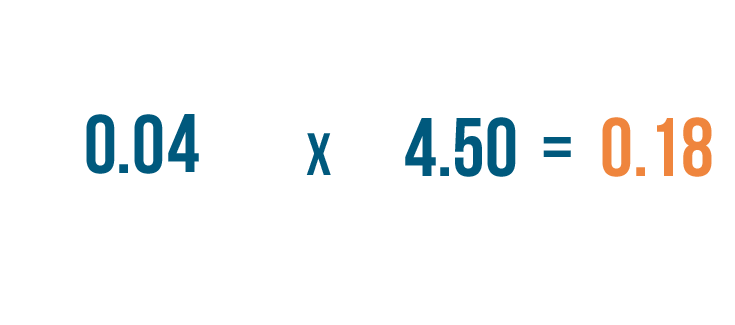
Now we'll multiply: 4.5 times 0.04 is 0.18, so the sales tax is $0.18, or 18 cents.
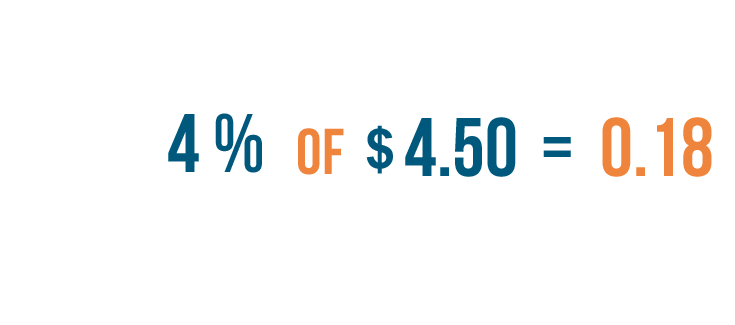
We could also say that 4% of $4.50 is $0.18.

Finally, we'll add the sales tax to the original price.
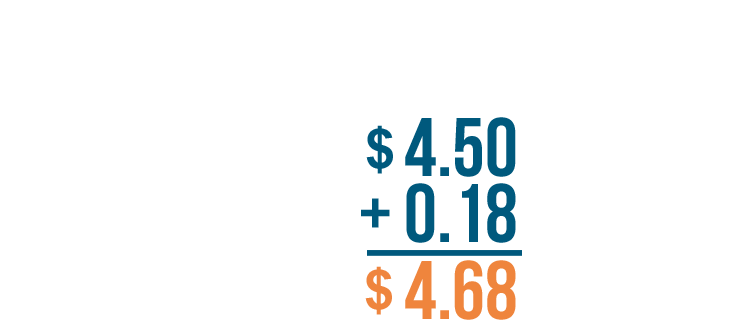
4.50 plus 0.18 is 4.68.
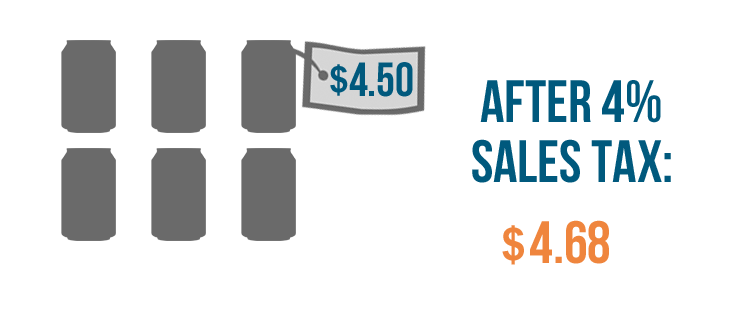
So the final price is $4.68 after adding sales tax.

Try This!
Find the total cost of each item after sales tax. Be sure to round your answer to the nearest cent. For example, $64.24305 would become $64.24.
You buy a pair of sunglasses for $49.00. The sales tax is 7%.
You need to purchase $326.00 worth of vinyl siding. The sales tax is 4%.
You buy $32.19 worth of groceries. The sales tax is 5.7%.
Curious about the sales tax where you live?
You can use this list of State and Local Sales Tax Rates from the Tax Foundation to look up the sales tax rate where you live.
Discounts, markdowns, and sales
Have you ever bought something on sale marked down by twenty percent? Or used a coupon to take 30% off? If so, you've used a discount. A discount is usually a percentage of the original price. The percentage is subtracted from the original price to determine the sale price.
Let's say a shirt costs $8, but it's been marked down by 50%. When you check out, 50% of $8 will be subtracted from the original price. How much would the shirt cost after the discount?
Click through the slideshow to learn how to calculate discounts.
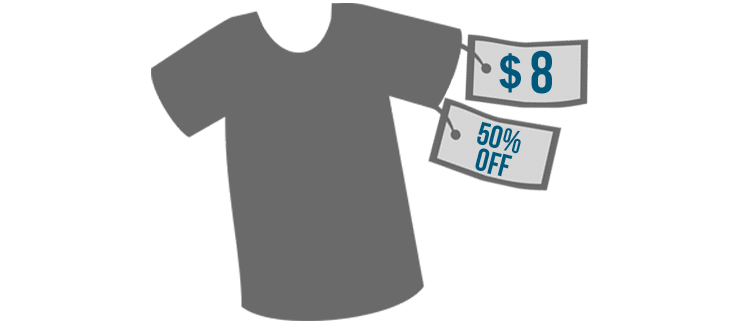
Let's say a shirt costs eight dollars, but it's on sale for 50% off.
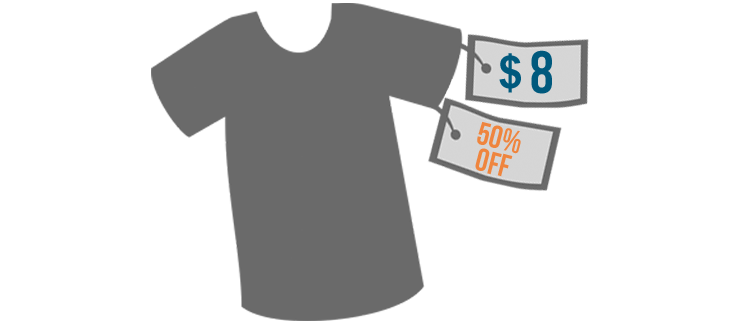
This means it will cost fifty percent less than the original price, or half as much.
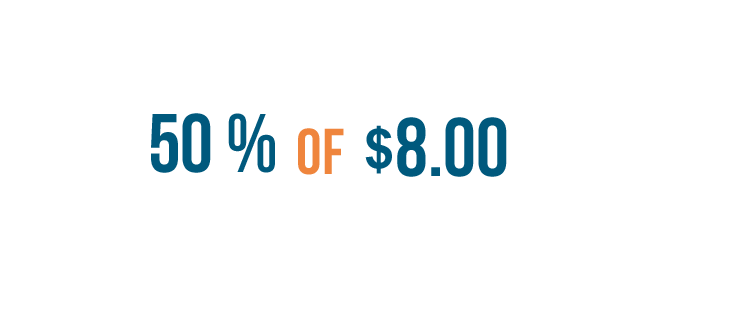
This discount is a percentage of the original price. Here, 50% off means the discount is 50% of $8.
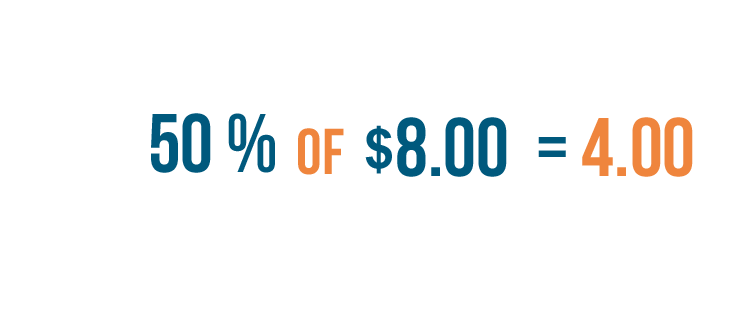
50%, or half, of 8 is 4. This means the shirt will cost $4 less than the original price.
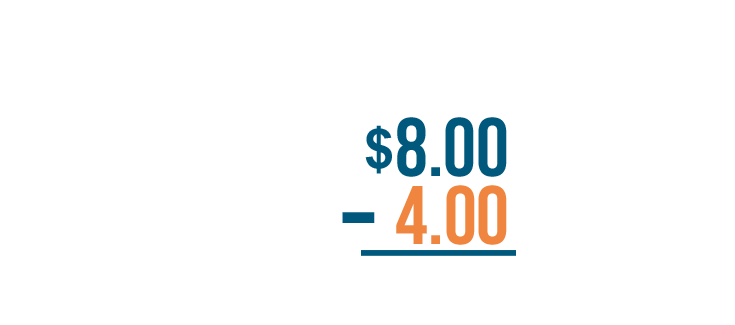
Remember, the discount is taken off of the original price. So we'll subtract the discount from the original price.
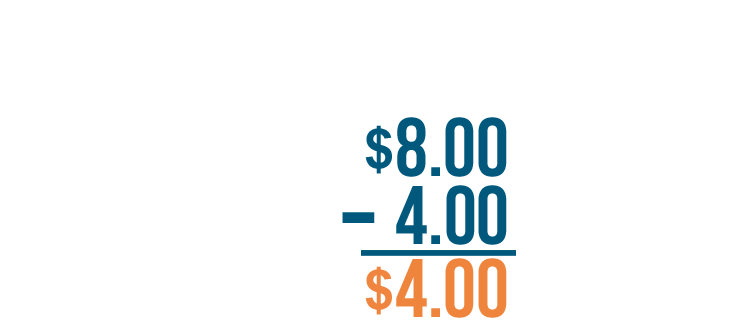
8 minus 4 is 4.
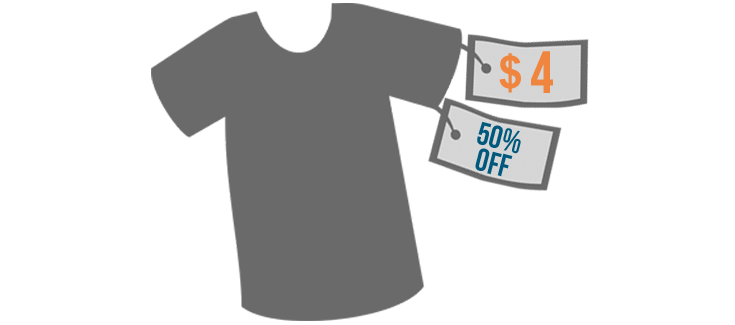
So the shirt would cost four dollars on sale.
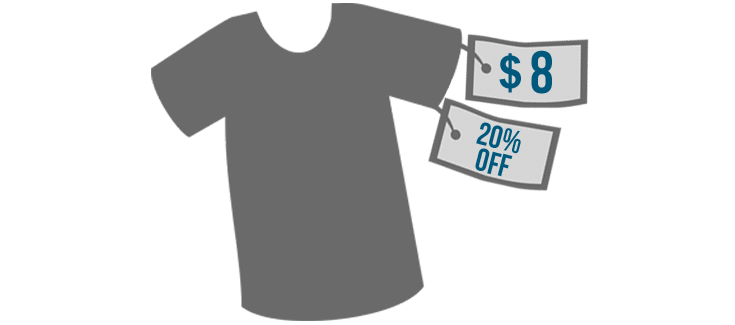
Let's try another example. What if the same shirt was on sale for 20% off?
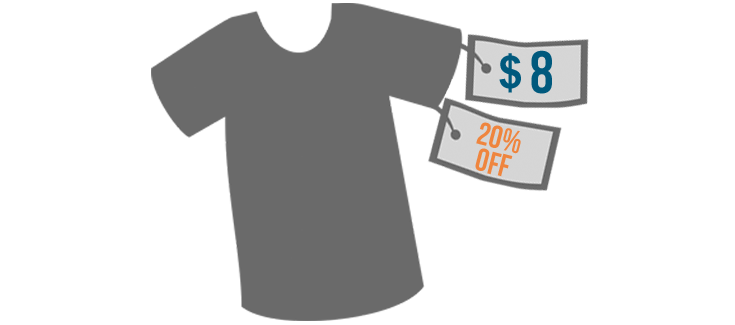
This means it would cost twenty percent less than the original price. This time, it'll take a few more steps to find the final price.
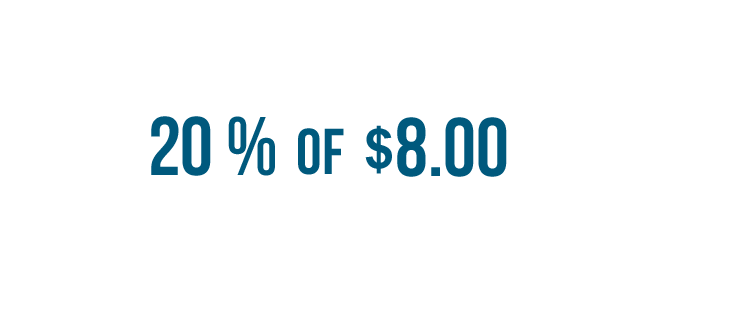
The discount is 20% of $8.
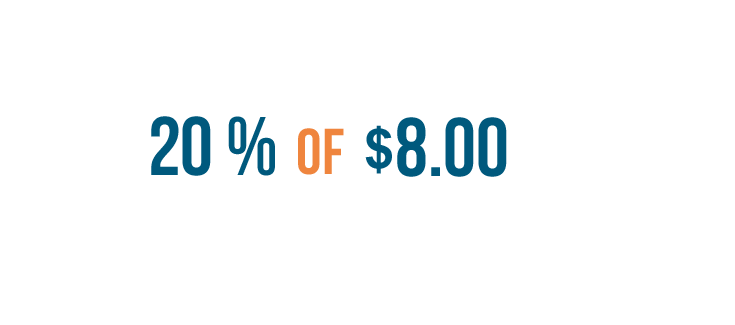
Whenever, you see the phrase "of something" in a math sentence, it's usually a hint that you'll need to multiply.
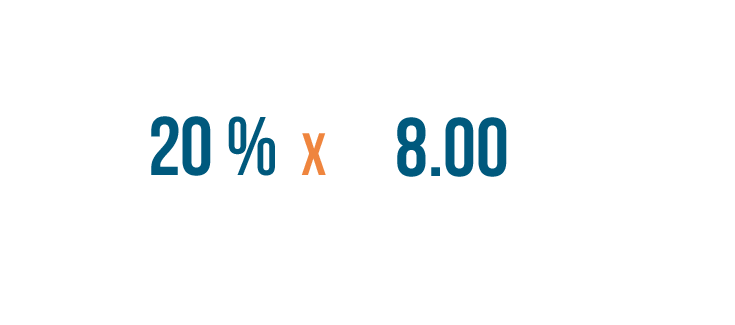
So we'll multiply 8 by 20%.
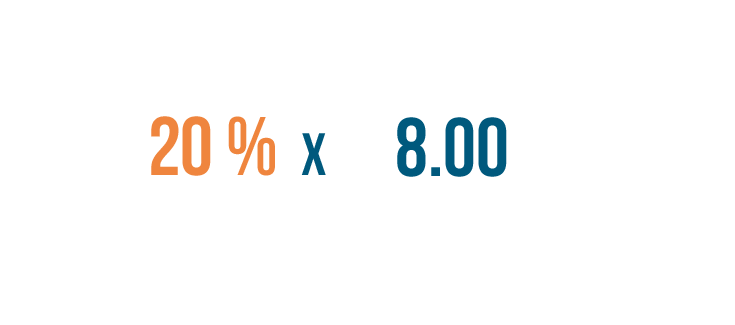
Before we can do that, we'll need to convert 20% into a decimal.
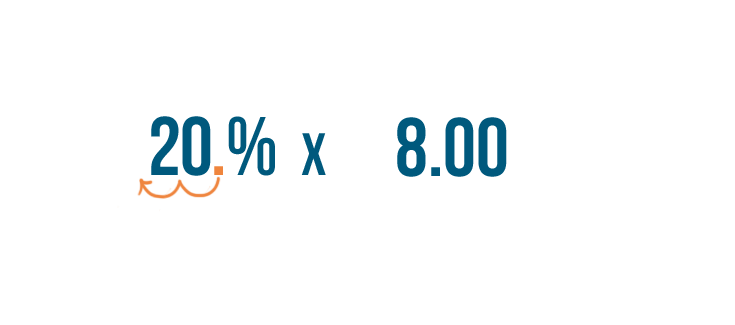
We'll move the decimal point two places to the left...
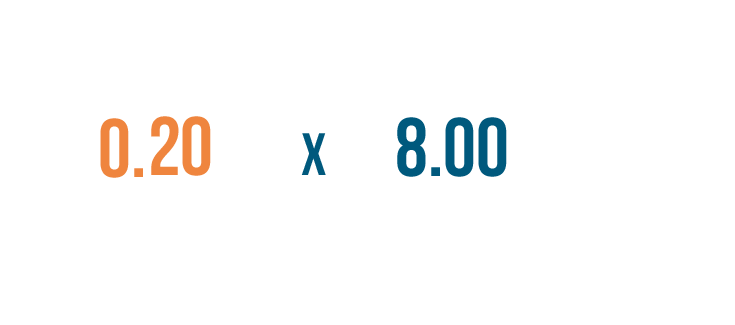
We'll move the decimal point two places to the left...so 20% becomes 0.20.
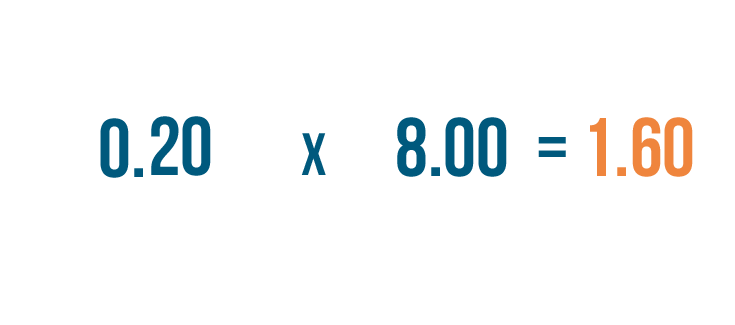
Now we can multiply. 8 times 0.20 equals 1.60.
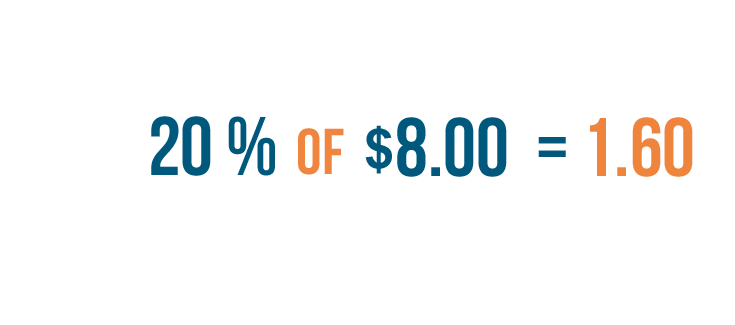
Another way to say this is that 20% of $8.00 is $1.60.

The shirt will cost $1.60 less than the original price of $8. So we'll subtract the discount from the original price.

8.00 minus 1.60 equals 6.40.
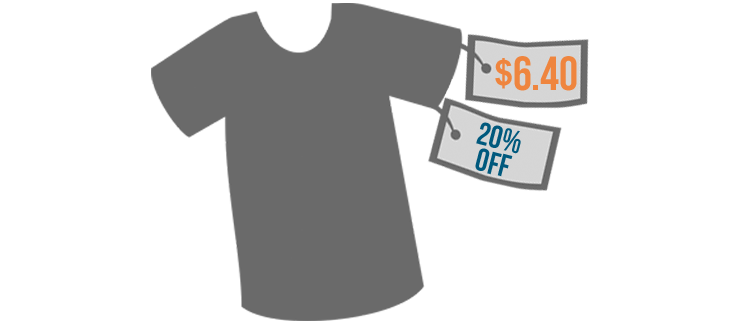
So the shirt would cost $6.40 on sale.

Try This!
Find the final cost for each item.
You find a pair of shoes on sale for 35% off. They originally cost $90.00. What will they cost on sale?
You spend $42.00 on groceries, but you have a coupon for 10% off. What is the final price of your bill?
A bookstore is going out of business, so all books are 60% off. How much would you spend on a book that originally cost $12.95?
Calculating tips
If you've eaten at a restaurant, you've probably left a tip for your server. A tip is a small amount of money that you add to your bill when someone gives you service. The amount of a tip is usually a percentage of the total cost. For example, you might leave a fifteen percent tip at a restaurant for average service.
Let's say you eat at a restaurant with some friends. The bill comes to $12.04, and you'd like to leave a 15% tip. This means you'd like to leave 15% of $12.04. How much money should you leave total?
Click through the slideshow to learn how to calculate tips.
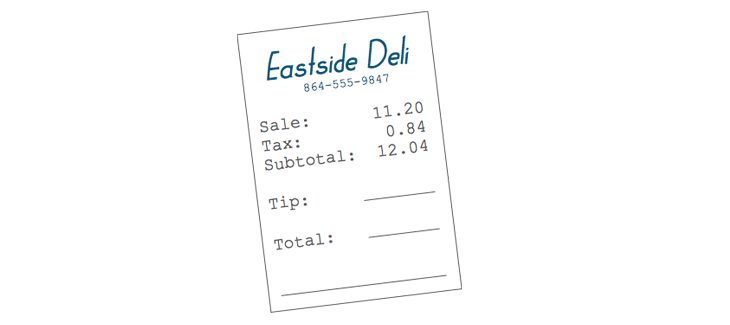
Let's say you went out to eat, and your bill is $12.04. You want to leave a 15% percent tip.
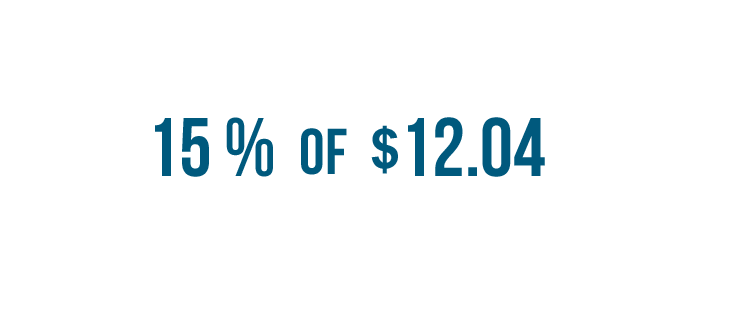
A tip is a percentage of the total. In this case, it means the tip is fifteen percent of $12.04.
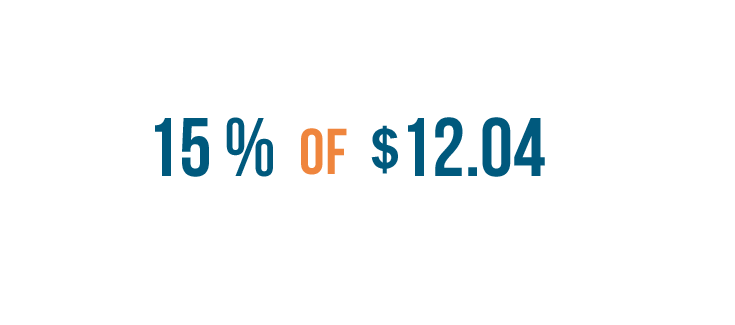
Whenever you see the phrase "of something" in a math sentence, it's usually a hint that you'll need to multiply.

So we'll multiply 12.04 by 15%.
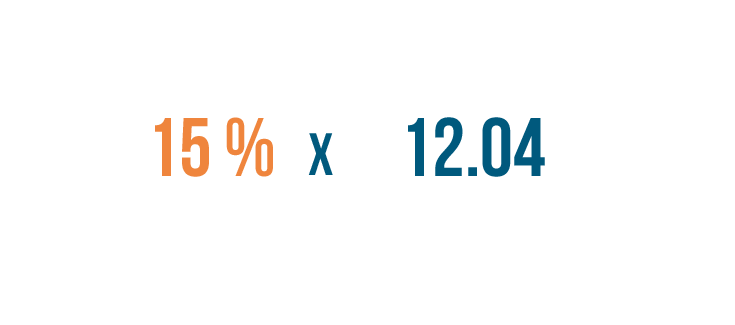
Before we can do that, we'll need to convert 15% into a decimal.
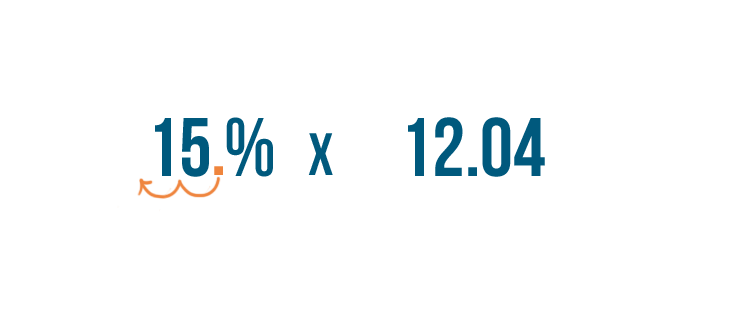
We'll move the decimal point two places to the left...
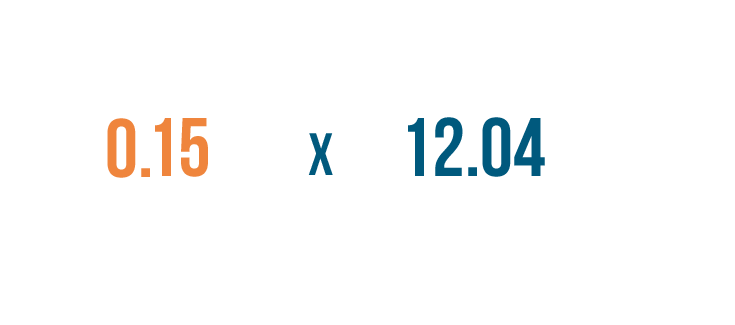
We'll move the decimal point two places to the left...so 15% becomes 0.15.
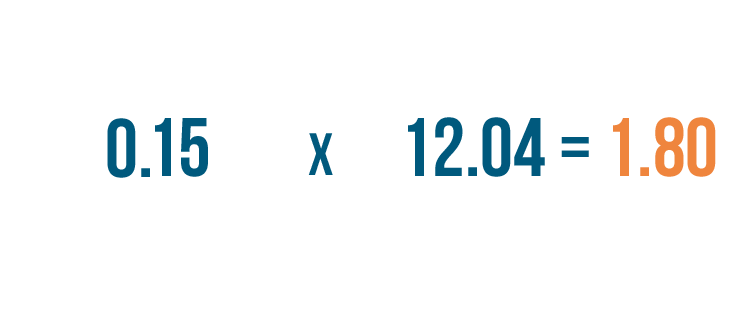
Now we can multiply. 0.15 times 12.04 equals 1.80.
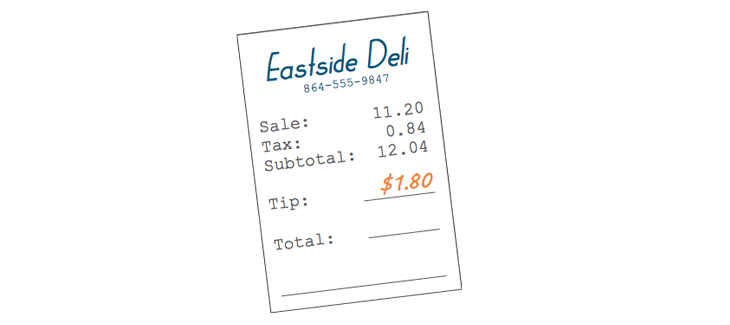
So the tip is $1.80.
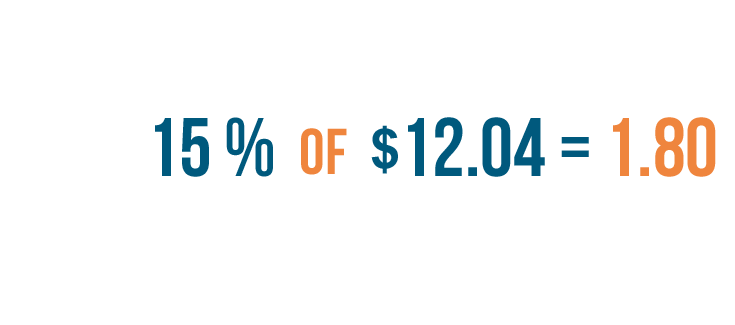
We could also say that 15% of $12.04 is $1.80.

Remember, a tip is extra money added to the total. So we'll add the tip to the bill.
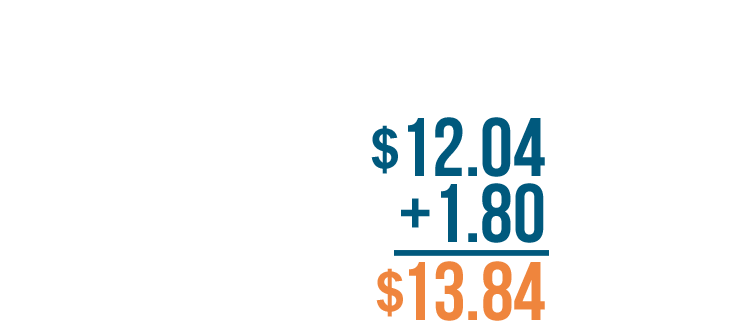
1.80 plus 12.04 equals 13.84.
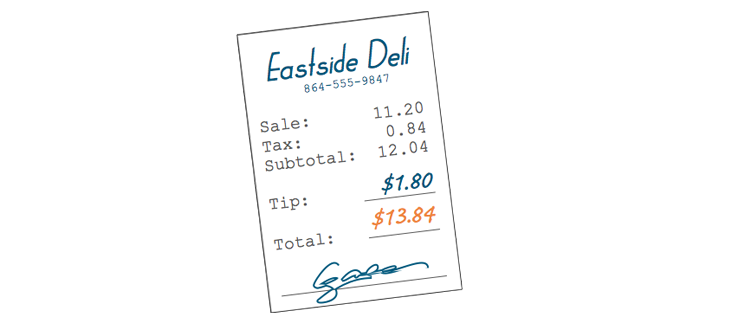
So the final price of the meal is $13.84, after including tip.
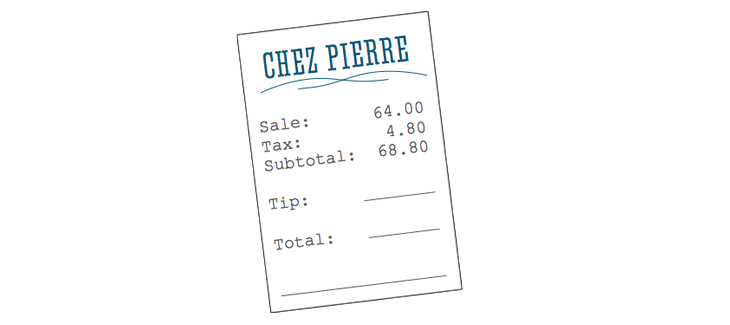
Let's try another example. Let's say you had excellent service and would like to leave a 20% tip for a meal that cost $68.80.
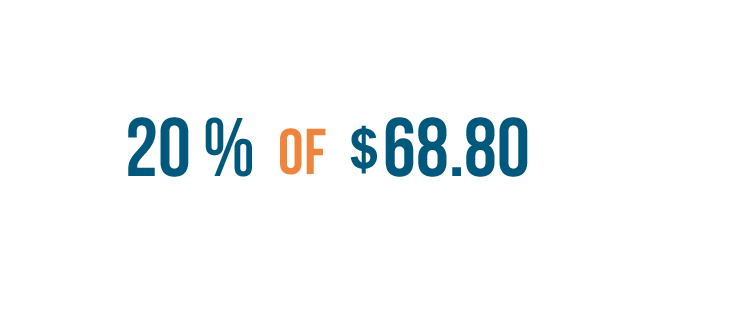
This means the tip will be 20% of $68.80.

We'll multiply 20% by 68.80.
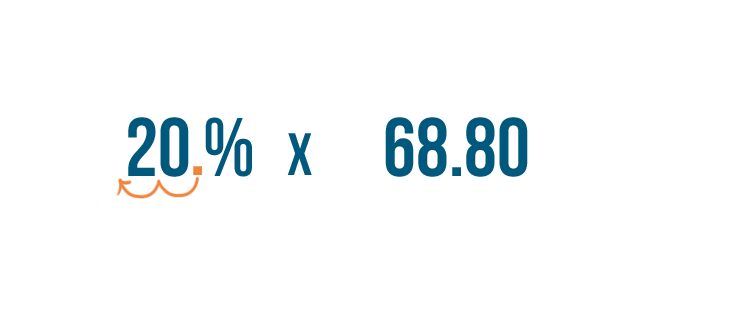
First, we'll need to convert 20% into a decimal, so we'll move the decimal point two places to the left.
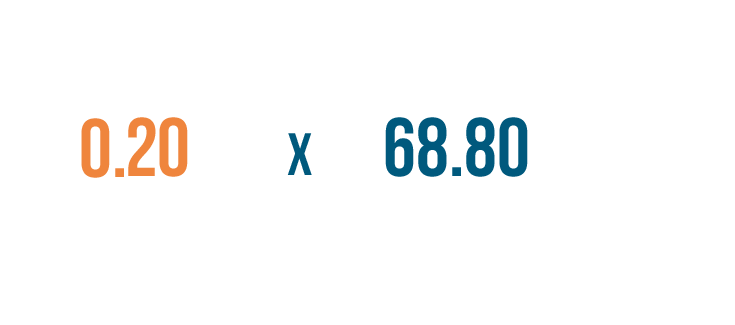
20% is the same as 0.20.
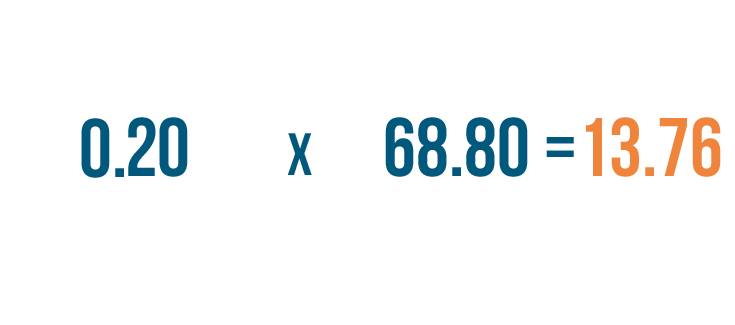
Now we'll multiply. 68.80 times 0.20 equals 13.76.
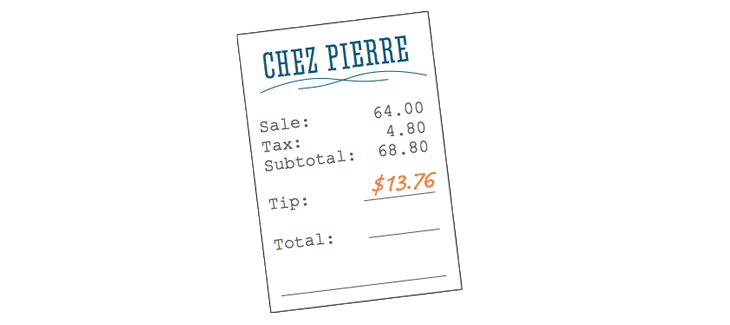
So the tip is $13.76.
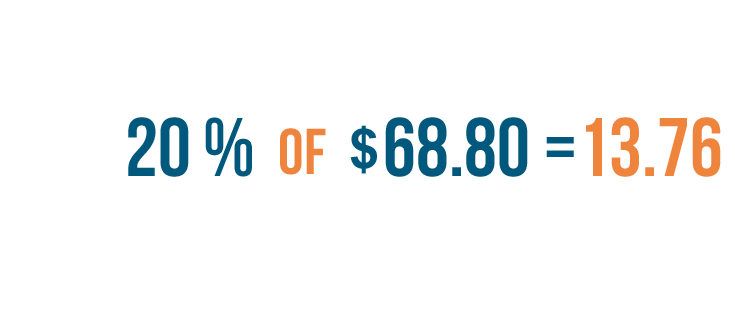
Another way to say this is that 20% of $68.80 is $13.76.
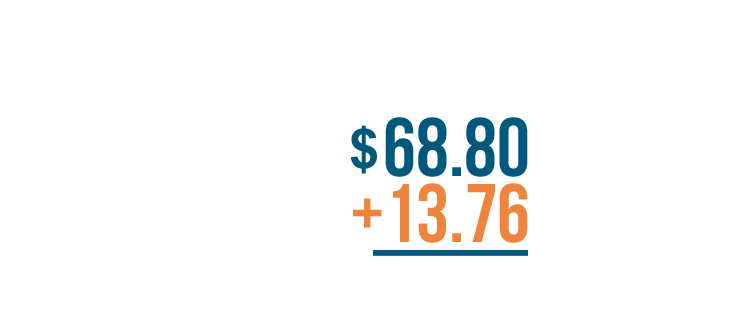
Finally, we'll add the tip to the bill.
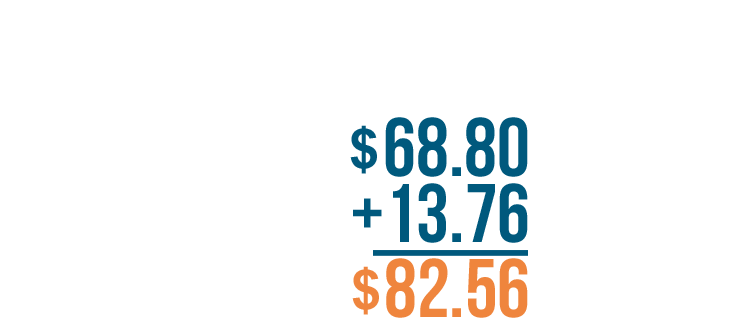
68.80 plus 13.76 equals 82.56.
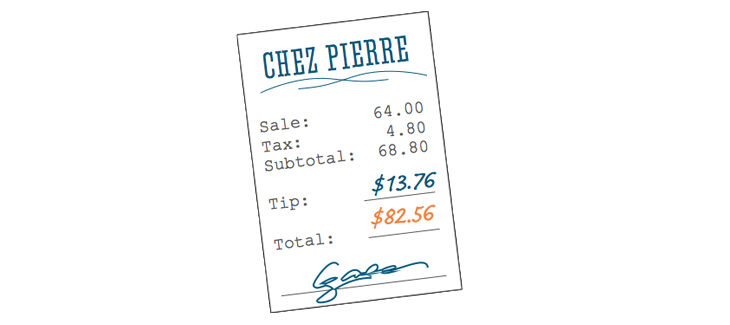
The final price, after tip, is $82.56.

Try This!
Find the final price for each item, including the tip.
You have a pizza delivered to your house. It costs $19. You want to leave the delivery driver a 15% tip. What's the total?
You eat out at a restaurant with some friends. The bill comes to $47.50. If you leave a 20% tip, what is the total cost of your bill?
Your cab fare from home to the airport is $35. You'd like to give your driver an 18% tip. What's the total?
/en/percents/converting-percentages-decimals-and-fractions/content/











